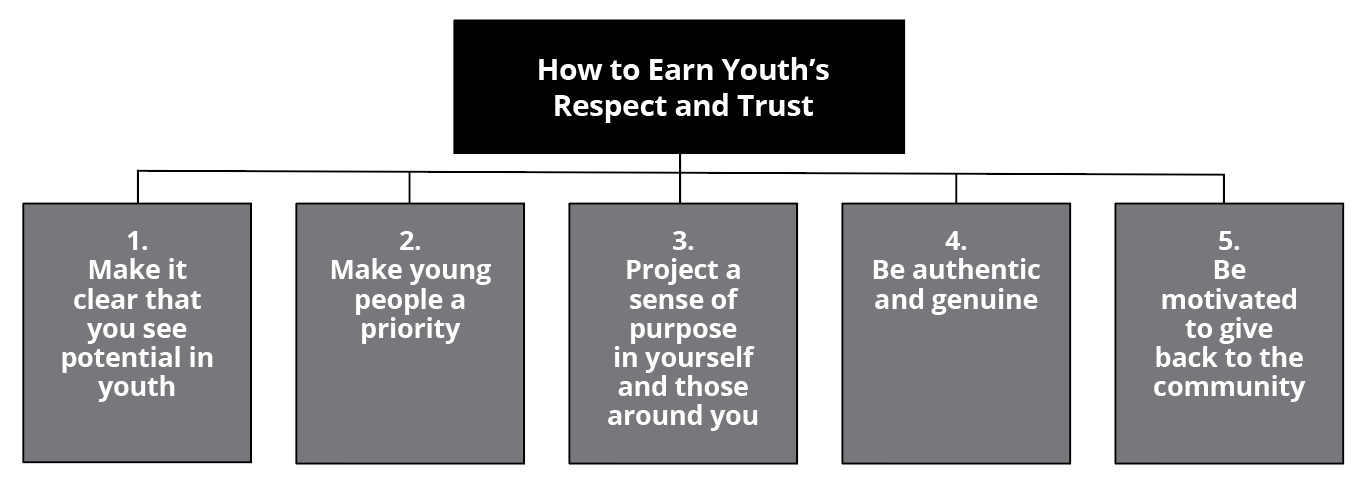The 6 C’s of Positive Youth Development: Caring Means That You Matter
“Why did you invite me to lunch?” asked Jasmine as they were approaching Angie’s car. “No one’s ever done that for me before”.
“Because I care about you, Jasmine, and I know that what you’re going through is hard.”
“I didn’t know how much I mattered to you,” Jasmine responded.
“Well, now you do. Remember, you’re never alone. I’m here for you”.
At that moment, Angie knew Jasmine would see her as more than her boss, but as her friend.
If you identify with Angie, this publication is for you! It’s the fifth of six from the Positive Youth Development (PYD) Series, and it emphasizes how caring positively impacts youth.
Mississippi 4-H is a youth organization made up of Extension Agents, volunteers, and caring adults who utilize the 6 C’s of Positive Youth Development to help young people develop the competencies for life-long success. While this publication is intended for adults working with young people in the 4-H youth development program, it applies to adults who work with youth across a variety of programs.
_________________________________________________________________________________________________
Caring is like throwing a pebble in a pond; it has a ripple effect that can extend further than you would ever imagine. Caring is feeling loved because you matter to someone. It’s feeling empathy and responsibility for others. It’s about being present and actively engaging with those around you.
However, caring isn’t restricted to family and friends only. PYD program adults can also develop caring relationships with youth and improve their lives. How’s that for a ripple effect?
Nurturing a caring environment
In PYD programs, such as 4-H, Extension agents and volunteers are responsible for creating a caring environment. Sometimes, it’s as simple as sharing, comforting, and helping youth. Other times, it’s more involved and complex.
- Trust: Doing what you say you're going to do
- Attention: Putting youth at the center of concern
- Empathy: Seeing the world through the eyes of young people
- Availability: Making time for young people a top priority
- Affirmation: Saying positive things to and about youth and meaning it
- Respect: Giving youth a say in decisions that affect them
- Virtue: Holding young people accountable for their behavior and being a role model
Figure 1. The main characteristics of caring relationships. (Adapted from Laursen and Birmingham (2003))
Caring develops through mutual trust between the caregiver and care-receiver and once established, it’s continuously transforming. Here are a few tips on how to get there:

Figure 2. How to earn respect and trust from young people.
Long-term effects of caring for youth
Caring relationships with adults are key to resilient youth. PYD program adults can help young people overcome adversity. Adults that serve in PYD programs are in a unique and ideal position to help youth monitor, manage, and control their positive and negative emotions.
You can provide the support and understanding they need to feel important and to show them that they matter. This can enhance their physical and psychological development for life. Youth can pass on the lessons that you taught them to future generations. These are the long-term ripple effects of caring relationships because when you care for someone, you’re planting a seed in hopes that it grows into a tree that benefits everyone in their surrounding community.
If you would like to know what youth have gained through participation in a program, you can use the Positive Youth Development Instrument to find out. It’s a series of questions that you can ask before the program starts and again after it ends to evaluate what participants learned. You can use the following table as a guide.
Caring Evaluation for PYD Program Participants
|
Tell us how strongly you agree or disagree with |
Strongly disagree |
Disagree |
Neither agree nor disagree |
Agree |
Strongly agree |
|
When there is a need, I offer assistance whenever I can. |
|||||
|
It’s easy for me to consider the feelings of others. |
|||||
|
I care about how my decisions affect other people. |
|||||
|
I try to encourage others when they are not as good at something as me. |
|||||
|
Other people’s feelings matter to me. |
|||||
|
I can be counted on to help if someone needs me. |
|||||
|
I care about the feelings of my friends. |
|||||
|
When one of my friends is hurting, I hurt too. |
|
|
|
|
|
Adapted from Arnold et al., (2012)
Summary
Caring means that you matter; this may be what youth in your community need to hear to find purpose in themselves.
4-H extension agents and volunteers establish caring relations by focusing on seven main characteristics: trust, attention, empathy, availability, affirmation, respect, and virtue. If you foster these in your relationships with young people, you can help them overcome difficult situations. To gain their trust and respect, make their potential and themselves a priority, have a sense of purpose, and be authentic, genuine, and motivated to give back to the community. This way, youth can see how much you care about the community.
As PYD program adults, you have the power to do good in your community and create a culture of caring that enriches the social environment in which young people live and grow. Empowering youth is caring for youth.
Being an assistant manager has helped Jasmine become a highly competent and confident individual, develop a strong sense of character, and build solid relationships through connection and caring. Angie feels proud of Jasmine’s growth and of the woman she’s becoming.
Even though their time working together is coming to an end, Angie knows that Jasmine will succeed wherever she goes. Soon, it will be Jasmine’s turn for contributing to positive youth development, the sixth and final C.
References
Arnold, M. E., Nott, B. D., & Meinhold, J. L. (2012). The Positive Youth Development Inventory Full Version. © Oregon State University. All Rights Reserved.
Chase-Lansdale, P. L., Wakschlag, L. S., & Brooks-Gunn, J. (1995). A psychological perspective on the development of caring in children and youth: the role of the family. Journal of Adolescence, 18, 515-556.
Fry, M. D., Kim, M., Gano-Overway, L., Guivernau, M., Newton, M., & Magyar, T. M. (2012). Youth Perceptions of a Caring Climate, Emotional Regulation, and Psychological Well-being. Sport, Exercise, and Performance Psychology, 1 (1), 44-57.
Ianni, F. A. J. (1996). The Caring Community as a Context for Joining Youth Needs and Program Services. The Journal of Negro Education, 65 (1), 71-91.
Laursen, E. K., & Birmingham, S. M. (2003). Caring Relationships as a Protective Factor for At-Risk Youth: An Ethnographic Study. Families in Society: The Journal of Contemporary Human Services, 84 (2), 240-246.
Newton, M., Watson, D. L., Gano-Overway, L., Fry, M., Kim, M., & Magyar M. (2007). The Role of a Caring-Based Intervention in a Physical Activity Setting. The Urban Review, 39 (3), 281-299.
Rew, L. (2008). Caring for and Connecting with Homeless Adolescents. Family and Community Health, 31 (1), 42-51.
Rhodes, J. (2004). The critical ingredient: Caring youth-staff relationships in after-school settings. New Direction for Youth Development, 101.
Walker, J. & White, L. (1998). Caring Adults Support Healthy Development of Youth. The Center. University of Minnesota’s Digital Conservancy.
___________________________________________________________________________________
Publication 3937 (POD-10-23)
By Patricia Marie Cordero-Irizarry, Doctoral Student, Agricultural and Extension Education; Mariah Smith Morgan, PhD, Associate Extension Professor, and Donna J. Peterson, PhD, Extension Professor, Human Sciences.
The Mississippi State University Extension Service is working to ensure all web content is accessible to all users. If you need assistance accessing any of our content, please email the webteam or call 662-325-2262.



